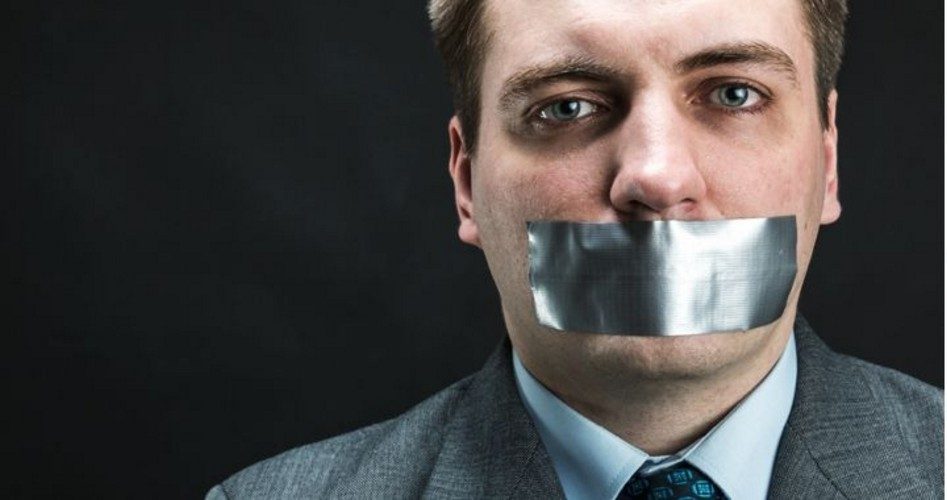
The European Parliament (EP) voted earlier this week to increase regulation of speech on the Internet, specifically targeting Google’s YouTube and Vimeo — platforms in which average citizens can share videos. The EP, the legislative body of the European Union (EU), has decided that some videos do not meet their standards.
The EP said it wants to protect its citizens from videos that use so-called hate speech and incitement to violence. While one can certainly understand a desire to curb incitement to violence, it is important to define what this actually means in practice. Perhaps of even greater concern is the prohibition against “hate speech,” which some in America have sarcastically defined as “speech that someone hates.” Opponents of “hate speech” usually define it as any speech that denigrates members of certain groups, based on subjects such as race or religion, or even “sexual orientation.”
According to the proposal voted on by the EP, video-sharing platforms such as You Tube will be required to take “appropriate, proportionate and efficient measures” to protect all the citizens in the EU from videos that contain incitements to violence or hatred or to undermining human dignity.
The proposal seeks to monitor social media such as Facebook and Twitter, in which users can post such videos, giving them a larger audience.
Certainly, a prohibition on inciting to undermine human dignity is vague. But when one realizes that it could include mere statements of opinion that run contrary to liberal ideology, the effect of such a prohibition should be chillingly clear.
Americans have become accustomed to the progressive Left calling opposition to such subjects as homosexuality and transgenderism examples of hate speech. Some have even equated advocating cuts in social programs to “hate speech.” How is hate speech and the undermining of human dignity defined in the EU?
An example from as long ago as 2004, drawn from a direct action by the governing structure of the EU, should provide some strong clues as to how “hate speech” is defined on that side of the Atlantic. According to Jonathan Olsen, in his book The European Union: Politics and Policies, the European Commission is led by a group of commissioners who are similar to our president’s Cabinet. A person is nominated for the commission by their national government (usually by its president or prime minister), and takes office unless there’s some objection by the either the president of the commission, the other commissioners, other governments, or the EP.
In 2004, Rocco Buttiglione, a professor of political science, was nominated from Italy to serve as justice commissioner. His well-known support for the cause of liberty led to his being awarded an honorary doctoral degree. In addition, his ability to speak six different European languages seemed to make him exceptionally qualified for the post.
But during a hearing before the EP’s Committee on Civil Liberties, Justice and Home Affairs, Buttliglione, a devout Roman Catholic, stated that he believed homosexuality was a sin. He further commented that the purpose of the family was to “have children” and have a male to protect them and their mother. Although these opinions were hardly a threat to hurt anyone, he assured the committee that this was simply his personal opinion, and that he opposed discrimination against homosexuals. Despite these assurances, Buttglione’s opinion was seen as “hate speech,” and this caused him to be rejected by a vote of 27-26 — not that he had actually done anything negative to anyone who differed from how he thought, nor did he state that he would do so. The fact that he expressed a thought that was unacceptable in modern Europe, at least to the oligarchical elites who run the government of the EU, meant that Buttliglione was disqualified to serve in the government of the EU. And so it could be concluded that any person who believes homosexual behavior is a sin cannot serve in the government of the EU. This would, of course, exclude any Christian who accepts the Bible as God’s word — which to many secularists in the EU is all to the good.
Buttliglione later commented, “The new soft totalitarianism that is advancing on the Left wants us to have a state religion. It is an atheist, nihilistic religion — but it is a religion that is obligatory for all.” For all the talk about Christians supposedly “imposing their religion” on others, it appears that in Europe, as in America, the imposing is coming from the secular-progressives. Since his rejection, Buttliglione and others have formed the Dignitatis Humanae Institute, in an effort to protect the integrity of Christians serving in public life. In the United States, that is a constitutionally protected right (no religious test can be used to keep someone from serving in public office), though American judges often ignore the plain wording of the Constitution. In Europe, such protections do not exist even on paper.
In addition to requiring the removal from You Tube of any video that sees homosexual behavior as a sin (which in the thinking of the EU elites, would constitute “hate speech” and therefore undermine their dignity), the EU also voted to make Netflix and Amazon Prime Video provide that at least 30 percent of their films be either European movies or European TV shows. The European Commission had proposed a quota of 20 percent.
This move by the EU is important for Americans because various left-wing innovations usually make their way eventually across the ocean to our shores. Many Americans on the Left, dating back at least to President Woodrow Wilson, have openly expressed the superiority of European life and government over American culture. It should be recognized that the globalist elites who run the EU, and their American cousins, are not content with such totalitarian impulses being contained in Europe. Their goal is for the entire world to suffer under this secular and tyrannical control.
As Buttliglione said, it is a state religion, “obligatory for all.”


